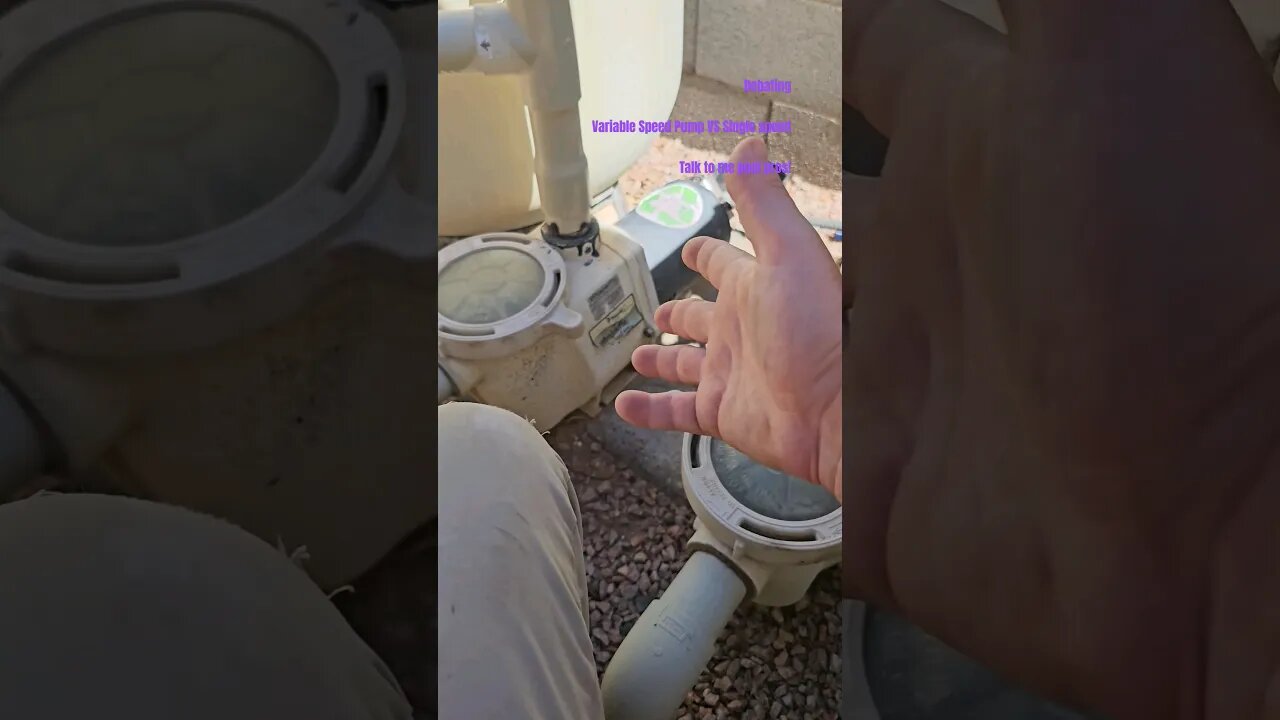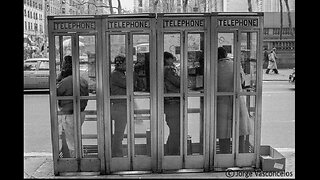Premium Only Content

Should I get a Variable Speed Pool Pump or Replace a Single Speed for 1/4 the Cost?
Variable speed pool pumps and single-speed pool pumps each have their own set of pros and cons, and the choice between the two depends on factors such as energy efficiency, cost, noise, and your specific pool needs. Here's a comparison of the pros and cons of both types:
Variable Speed Pool Pumps:
Pros:
Energy Efficiency: Variable speed pumps are highly energy-efficient because they can operate at different speeds. You can adjust the pump's speed to match the pool's filtration and circulation needs, reducing energy consumption and potentially lowering utility bills.
Quiet Operation: Variable speed pumps tend to be quieter than single-speed pumps, especially when operating at lower speeds. This can create a more peaceful pool environment.
Longer Lifespan: Variable speed pumps often have a longer lifespan than single-speed pumps due to their advanced motor technology and reduced wear and tear from lower-speed operation.
Customizable Settings: You can program variable speed pumps to run at specific speeds and schedules, optimizing performance for your pool.
Potential Rebates: Many utility companies offer rebates and incentives for installing energy-efficient variable speed pumps, which can help offset the initial cost.
Cons:
Higher Initial Cost: Variable speed pumps are typically more expensive upfront compared to single-speed pumps.
Complexity: Programming and understanding the settings of variable speed pumps can be more complex than operating a single-speed pump.
Single-Speed Pool Pumps:
Pros:
Lower Initial Cost: Single-speed pumps are generally more affordable to purchase initially, making them a budget-friendly option.
Simple Operation: Single-speed pumps are straightforward to operate. They have one speed, typically high, which is suitable for pool cleaning and circulation.
Cons:
Higher Energy Consumption: Single-speed pumps run at a constant high speed, which can lead to higher energy consumption and increased operating costs.
Noisy Operation: Single-speed pumps are often louder when running at high speed, potentially creating a noisier pool area.
Limited Energy Efficiency: These pumps are not as energy-efficient as variable speed pumps, which means they may not meet modern energy efficiency standards.
Variable speed pool pumps are generally a more energy-efficient and quieter option, with potential long-term cost savings, but they have a higher upfront cost. Single-speed pool pumps are more budget-friendly initially but can be less efficient and noisier, leading to higher operating costs over time. Your choice should consider your budget, energy efficiency goals, and noise tolerance, among other factors. Additionally, local utility rebates and regulations may influence your decision.
🏠 Need a Home Inspection? 🏠
Schedule your inspection with Home Inspector Dan today! We're here to make sure your future home is safe and sound.
🔍 Residential Home Inspections
🪲 Termite Inspections
💧 Pool Inspections
🚰 Sewer Camera Inspections
📞 Reach out:
☎️ Scheduling: 800-285-3001
📧 Email: dan.pierce@bpginspections.com
🌐 Online Scheduling: bpginspections.com
Stay informed, make confident decisions, and ensure your home is in great shape with Home Inspector Dan.
Connect with us:
👍 Facebook: @homeinspectordanarizona
📷 Instagram: @homeinspector_dan
🐦 Twitter: @homeinspectdan
🎥 YouTube: @homeinspectordan
-
 0:42
0:42
Home Inspector Dan
1 year ago $0.02 earnedUpgrade Your Electrical Panel : Say Goodbye to Plywood Backer Boards
57 -
 1:01:01
1:01:01
TheTapeLibrary
10 hours ago $0.65 earnedThe Horrifying True Story of Summerwind Mansion
4.06K -
 29:28
29:28
Afshin Rattansi's Going Underground
1 day agoMax Blumenthal on US’ Ukraine Aid Corruption, 'Psychotic' Israel Turning the West Bank into Gaza
15.8K1 -
 57:13
57:13
Sarah Westall
3 hours agoUnited States in a Two Front War, Identify Military Psyops and Special Operations w/ Jeffrey Prather
17.7K4 -
 LIVE
LIVE
Quite Frankly
7 hours ago"Open Phones: D.C. Crash, Senate Hearings, Petty Break-Ups" 1/31/25
1,317 watching -
 1:45:32
1:45:32
2 MIKES LIVE
6 hours ago2 MIKES LIVE #173 Open Mike Friday!
29.9K1 -
 54:53
54:53
LFA TV
9 hours agoDemocrats’ Greatest Fear Is Accountability | TRUMPET DAILY 1.31.25 7pm
21.9K5 -
 23:15
23:15
Bare Knuckle Fighting Championship
1 day agoBKFC FIGHT NIGHT MOHEGAN SUN FREE FIGHTS
23.4K2 -
 5:49:46
5:49:46
Bitfinex
9 hours agoBitfinex Talks Live at PlanB El Salvador - Day 2
26.7K2 -
 41:47
41:47
Candace Show Podcast
5 hours agoBecoming Brigitte: An Introduction
129K214